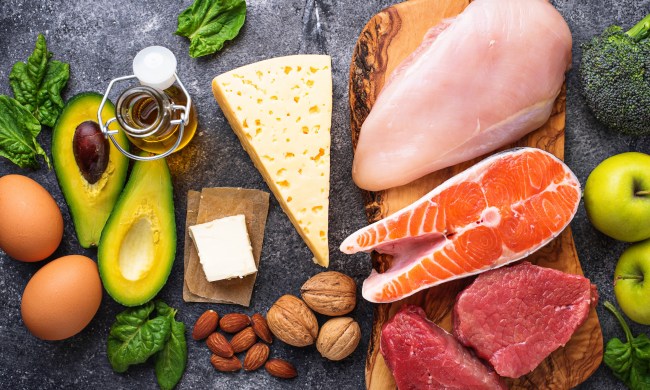Plateauing is one of the biggest challenges during a weight loss journey, and as a personal trainer, I run into it all the time with my clients. You may have in the past or currently are making progress and feeling great about yourself, but suddenly — and for no apparent reason — you’re stuck. It leaves you wondering, “How long can a weight loss plateau last?” Will you be stuck here for weeks? Months? Forever?
This article is here to help you with the answers. We’ll explain how plateaus happen, how long you can expect them to last, and what you can do to break the plateau and keep the weight loss going. Soon, you’ll be a plateau pro!
What is a weight loss plateau?

A weight loss plateau is when your weight loss stalls. After you’ve been losing weight for a while, you might suddenly stop losing weight, even though you’re still eating the same diet and following the same exercise plan that was helping you lose weight before.
What causes a weight loss plateau?

There are several theories about what causes weight loss. One common hypothesis is that the body’s metabolism slows down during weight loss: “People’s bodies react to [weight loss], and they become more metabolically efficient. And so the same calorie deficit won’t do it for you. That’s why people’s weight loss starts to plateau,” according to a doctor interviewed by CNN.
Another possibility is based on calorie counting. There’s a certain number of calories your body requires in order to maintain the weight it’s at, and this is called your maintenance calories. It’s calculated based on your activity level as well as your current weight. In other words, when you lose weight, your maintenance calories also drop because you have less weight to maintain. If you keep following the same diet plan with the same calorie goal, you’ll see less and less progress from it because your maintenance calories have gone down, and that means your calorie deficit has also gone down.
Worse, these effects add together. If your metabolism slows, that also reduces your maintenance calories, meaning your deficit might be even less than you think. Even a calorie calculator can’t measure your metabolism. It can give an estimate of your maintenance calories based on your weight and activity, but if your metabolism has slowed down, the numbers you get will still be too high.
How long can a weight loss plateau last?

Weight loss plateaus are typically expected to last a few weeks to months. However, if you’ve reached a point where your weight and activity level can be maintained by your current calorie intake, it could last indefinitely. In a case like that, you’ll probably need to adjust your exercise or diet to get out of the plateau.
Tips for breaking through your plateau

Reduce your calories
Changing your diet or further reducing your calorie intake can help you lose weight again when you’re stalled. Although interpretations vary, plateauing is probably at least partly caused by your body and your metabolism adjusting to a lower calorie intake. It’s like pouring water out of a jar; when you tilt the jar, some of the water will come out, but only until the water is level with the lip of the jar. Reducing your calorie intake is like tilting the jar further to pour out more of the water.
Change or increase your exercise
Your exercise and activity level can also play a role in your plateau. Some studies suggest that increasing exercise is easier for many people than reducing food. Even adding everyday exercises, like walking around the block, can help pull you out of a weight loss plateau. You can also use similar techniques to those used for breaking a muscle-building plateau.
Refeed
Refeeding is a technique designed to increase your metabolism, which may have slowed to accommodate your calorie deficit. One or two days a week, try eating 300 to 500 more calories of primarily carbohydrates. This signals to your metabolism that food is available, so it doesn’t need to slow down. Then, return to your usual food intake for the rest of the week.
When to seek professional guidance

If you’re having trouble leaving a plateau and it’s lasted for more than three months, you might want to look for help. A personal trainer or dietician can give you guidance when it comes to resuming your weight loss progress.
Frequently asked questions

How do you jumpstart a stalled metabolism?
Refeeding can help you increase your metabolism, but so can caffeine, spicy food, and a high protein intake, among other methods. Try a variety to see what works for you.
Why am I not losing weight after 3 weeks of working out?
Working out without dieting might not help you lose weight; you might crave and eat more calories to make up for the calories lost. Alternatively, it’s also possible that you’re losing fat but gaining muscle, which can make it hard to track your weight loss.
Will a cheat day break my plateau?
A thoughtful refeed day, with extra calories from vegetables, lean protein, and healthy fat, might help break your plateau. Taking a cheat day as an excuse to eat anything you want, including unhealthy foods, is more likely to just set you back.




